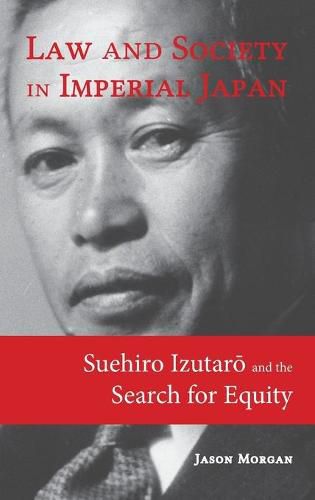Readings Newsletter
Become a Readings Member to make your shopping experience even easier.
Sign in or sign up for free!
You’re not far away from qualifying for FREE standard shipping within Australia
You’ve qualified for FREE standard shipping within Australia
The cart is loading…






This title is printed to order. This book may have been self-published. If so, we cannot guarantee the quality of the content. In the main most books will have gone through the editing process however some may not. We therefore suggest that you be aware of this before ordering this book. If in doubt check either the author or publisher’s details as we are unable to accept any returns unless they are faulty. Please contact us if you have any questions.
Japan emerged from the Edo Period (1600-1868) with a legal system which, in many ways, tended to privilege situational judgment over strict adherence to universally-applicable legal codes. Under pressure from without and within to modernize, Japan adopted many Western laws and jurisprudential practices which were largely alien to Japanese society. At the same time, Japan took on Western modes of political participation which tended to exacerbate more than solve the social ills attendant on industrialization and modernity. Suehiro Izutaro, a legal scholar at the University of Tokyo, and a group of likeminded professors and activists attempted to ameliorate Japanese social problems through a case law method, making the courts more responsive to the poor through the application of a native form of Japanese equity from the Edo Period. However, as Japan’s regional reach expanded and the world situation darkened, the prerogatives of empire cut short Suehiro’s social experiments and eventually co-opted even Suehiro himself in imperial logic.
Japanese law is often approach comparatively, but in this study the inner workings of law in Japan–jurisprudentially as well as philosophically and politically–are given priority. By foregrounding case studies and other primary sources in Japanese, Equity under Empire shows how Japan, and the Japanese legal-political system, changed from the inside. Following the career of one of the twentieth century’s most prominent legal minds, Equity under Empire maps the intellectual and historical twists and turns that set Japan on a course far removed from Edo equity, grappling with the internal contradictions of imperialism as she moved beyond the archipelago in a struggle with Anglo-European powers in Asia and the Pacific. This is a from-the-inside look at the life of the law in Japan from the closing years of Edo through the first half of the twentieth century.
Equity under Empire is an important book for collections on East Asian history and law, and on law and legal philosophy in general.
$9.00 standard shipping within Australia
FREE standard shipping within Australia for orders over $100.00
Express & International shipping calculated at checkout
This title is printed to order. This book may have been self-published. If so, we cannot guarantee the quality of the content. In the main most books will have gone through the editing process however some may not. We therefore suggest that you be aware of this before ordering this book. If in doubt check either the author or publisher’s details as we are unable to accept any returns unless they are faulty. Please contact us if you have any questions.
Japan emerged from the Edo Period (1600-1868) with a legal system which, in many ways, tended to privilege situational judgment over strict adherence to universally-applicable legal codes. Under pressure from without and within to modernize, Japan adopted many Western laws and jurisprudential practices which were largely alien to Japanese society. At the same time, Japan took on Western modes of political participation which tended to exacerbate more than solve the social ills attendant on industrialization and modernity. Suehiro Izutaro, a legal scholar at the University of Tokyo, and a group of likeminded professors and activists attempted to ameliorate Japanese social problems through a case law method, making the courts more responsive to the poor through the application of a native form of Japanese equity from the Edo Period. However, as Japan’s regional reach expanded and the world situation darkened, the prerogatives of empire cut short Suehiro’s social experiments and eventually co-opted even Suehiro himself in imperial logic.
Japanese law is often approach comparatively, but in this study the inner workings of law in Japan–jurisprudentially as well as philosophically and politically–are given priority. By foregrounding case studies and other primary sources in Japanese, Equity under Empire shows how Japan, and the Japanese legal-political system, changed from the inside. Following the career of one of the twentieth century’s most prominent legal minds, Equity under Empire maps the intellectual and historical twists and turns that set Japan on a course far removed from Edo equity, grappling with the internal contradictions of imperialism as she moved beyond the archipelago in a struggle with Anglo-European powers in Asia and the Pacific. This is a from-the-inside look at the life of the law in Japan from the closing years of Edo through the first half of the twentieth century.
Equity under Empire is an important book for collections on East Asian history and law, and on law and legal philosophy in general.